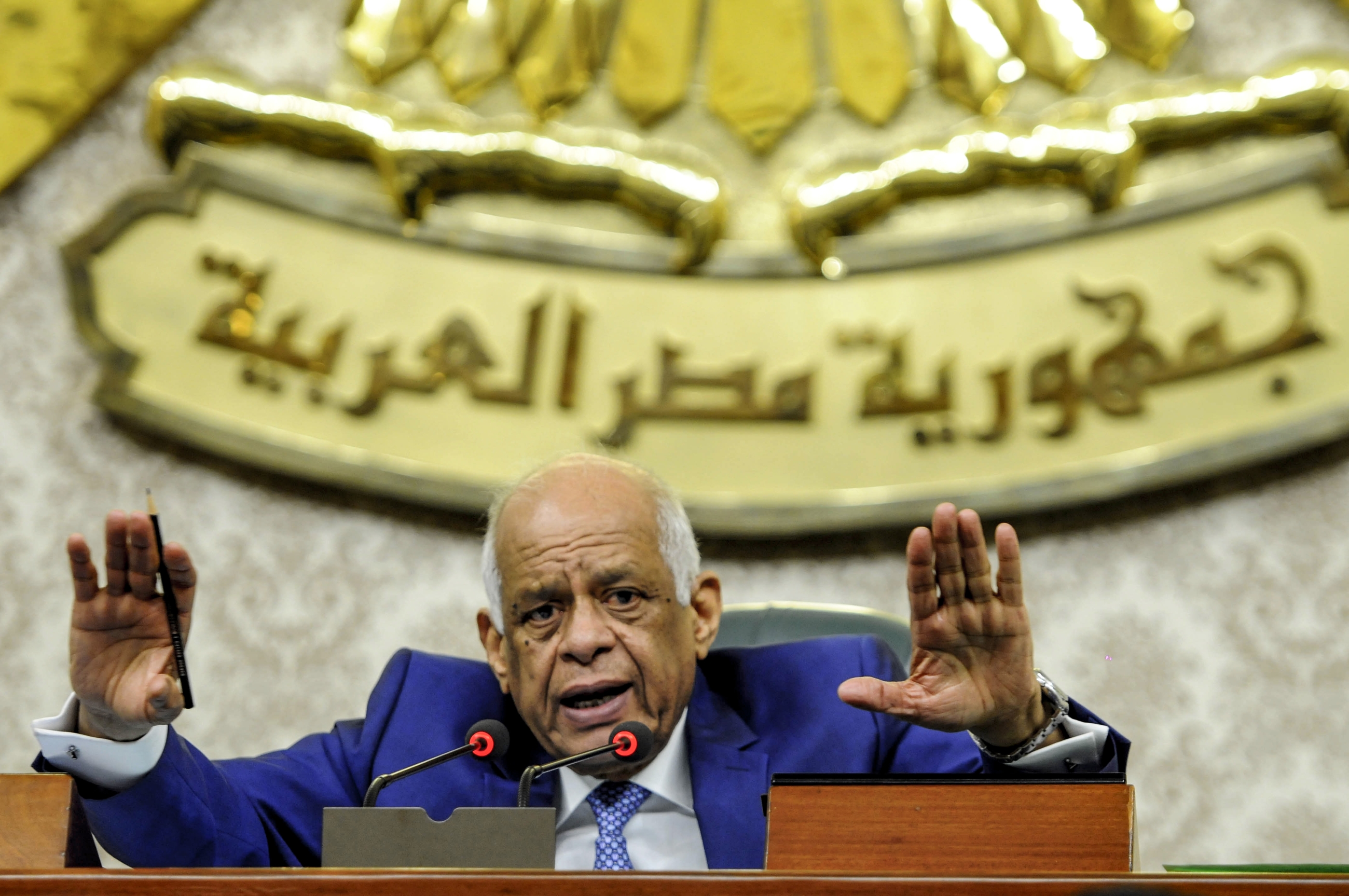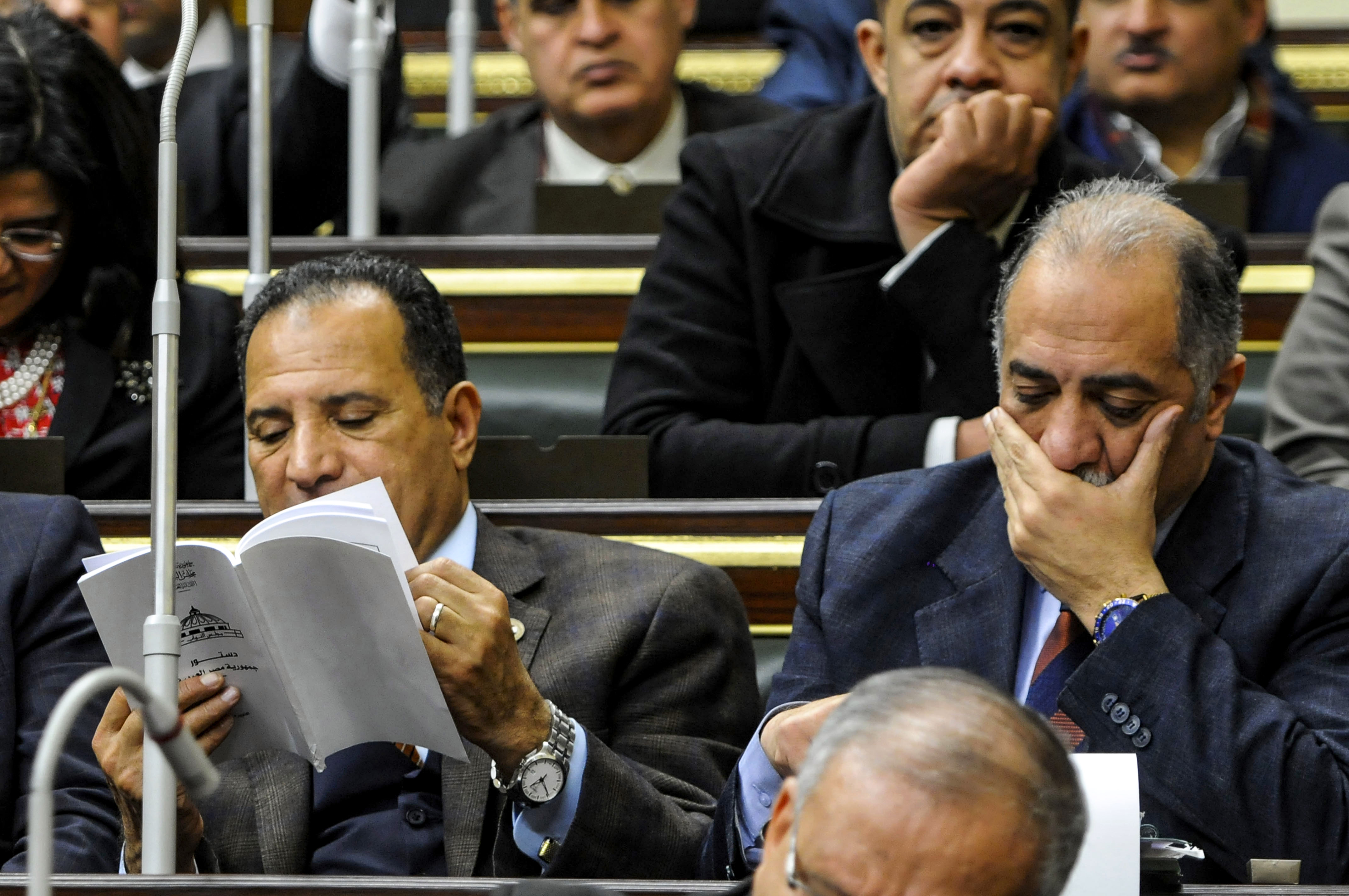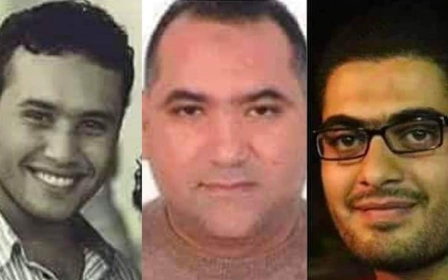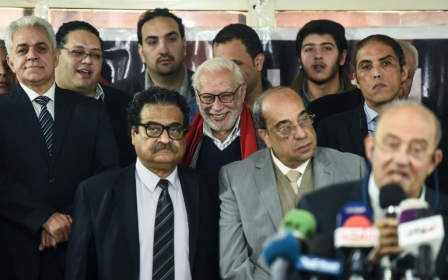Egypt parliament votes in favour of allowing Sisi to rule until 2034

Egypt's parliament on Thursday approved a proposal to amend the constitution, moving the country one step closer to a popular referendum that could place President Abdel Fattah el-Sisi in power until 2034.
According to Parliament Speaker Ali Abdelal, 485 MPs out of 596 voted in favour of the amendments that would allow Sisi two more presidential terms, extended to six years each from four.
The proposal has now been submitted to the legal committee in parliament to ratify it, according to Abdelal.
Sixteen MPs opposed the amendments, including Ahmed Tantawy, Haitham el-Hariri, Ahmed el-Bardeesee, Ahmed el-Sharqawy, Samir Ghattas, Mostafa Kamal Hussein, Nadia Henry, Sayed Abdelal, Fayza Mahmoud, Talaat Khalil, Gamal el-Sharif, Diaa Eldin Dawud, Mohamed al-Etmany, Rida al-Beltagy, Mohamed Abdelghani, and Salah Abdelbadie.
The speaker said that parliament's legislative committee, as of Thursday, would start soliciting comments on the approved amendments for one month.
Dialogue sessions with experts and public figures are then set to be held for a period of two weeks and another fortnight would be left for the committee to finalise a draft for a final parliamentary vote before a popular referendum.
How would Egypt’s constitution change?
+ Show - HideMeasures proposed under the new constitution include:
- Extending the presidential term from four to six years. A separate provision would let the current president to run for office at the end of his current term
- Expanding the role of the armed forces to include “safeguarding the constitution and democracy, maintaining the foundations of the state and its civilian nature, the gains of the people, and the rights and freedoms of the individual”.
- Allowing the president to appoint the prosecutor general, the head of the supreme constitutional court and its new members, also to chair a supreme council for judicial bodies
- Creating a second parliamentary chamber, with one-third of members appointed by the president
- Allocating at least one quarter of the parliamentary seats for women
- Increasing the allocation of parliamentary seats for Coptic Christian candidates.
- Creating the post of vice-president to assist the president and to serve as temporary president with limited powers if the president cannot carry out his duties
Tantawy, one of the lawmakers who rejected the amendments, said in a rare show of public criticism on Wednesday that the proposed amendments set Egypt on a backward path to "the medieval ages".
"What we are doing in parliament is constitutionally invalid," he said in a speech that was shared widely by Egyptians on social media.
"This parliament has no right to amend articles related to presidential elections, or rights and freedoms. Nor does it have a right to create a new article that violates all legislative norms, tailored specifically for one person, except that it did not name him."
On Wednesday, 11 Egyptian NGOs issued a joint statement condemning the amendments as a threat to the country's stability.
"These amendments were drafted specifically to enable President Abdel Fattah el-Sisi to retain power for life and exercise unprecedented unilateral authority, while granting custodianship over Egypt's constitution and democracy to the military establishment, despite the military's utter disrespect for both since Sisi's ascension to power," the organisations said.
The statement further denounced the proposed quota for women's representation in parliament and greater inclusivity for minorities as "a disingenuous attempt to sugarcoat its authoritarian power-grab".
The signatories included the Cairo Institute of Human Rights Studies, the Nadeem Centre, the Committee for Justice, and the Egyptian Commission for Rights and Freedoms.
Sisi won a second term in April last year, running virtually unchallenged in presidential elections after all candidates - except one, who publicly supported him - were arrested or discredited. His current term ends in 2022.
Rights groups estimate at least 60,000 political prisoners are languishing in Egyptian jails, following Sisi's accession to the presidency in 2014, one year after he ousted his predecessor Mohamed Morsi in a military coup.
Middle East Eye propose une couverture et une analyse indépendantes et incomparables du Moyen-Orient, de l’Afrique du Nord et d’autres régions du monde. Pour en savoir plus sur la reprise de ce contenu et les frais qui s’appliquent, veuillez remplir ce formulaire [en anglais]. Pour en savoir plus sur MEE, cliquez ici [en anglais].





